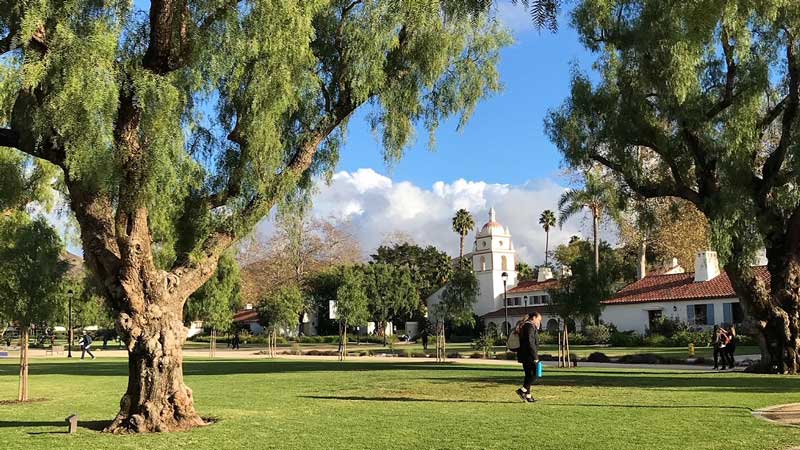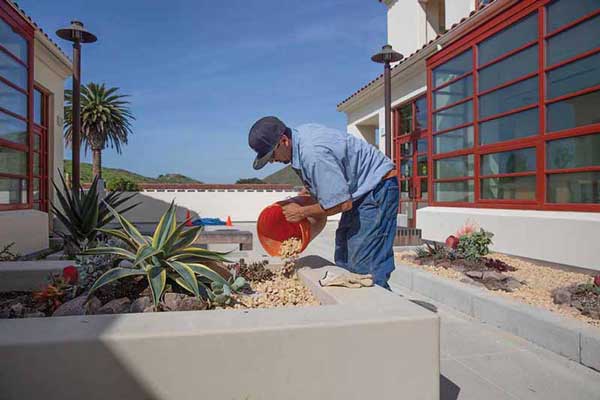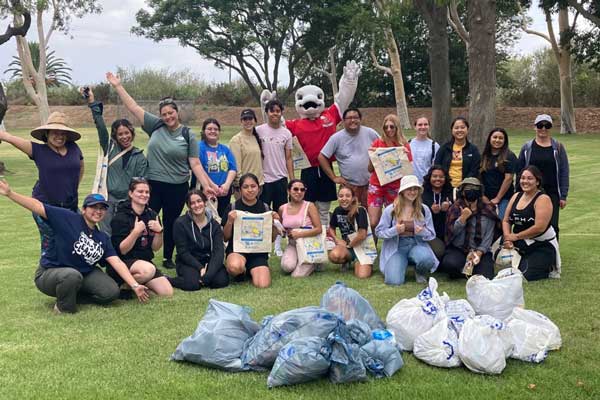
California State University Channel Islands (CSUCI) is committed to becoming a more environmentally sustainable campus.
CSUCI identifies sustainability as one of the strategic goals for the campus and seeks to reduce the impact of operations by responsibly managing facilities and resources. New and innovative sustainability efforts are underway across campus, actively involving students, faculty, staff, and community partners.



